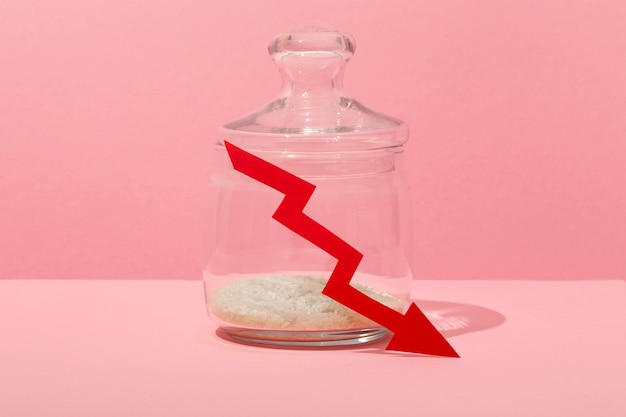5 Signs Indicating Your Ongoing Path to Financial Ruin

You might be in a good financial spot right now, but not everyone is that lucky. Over the past few years, more people have become aware of their finances, which has led to fewer bankruptcy cases. However, this is partly because people who are bankrupt don’t always file for bankruptcy to avoid legal fees and extra costs that could strain their budget even more. Unfortunately, this means many of them don’t know how to rebuild their credit after facing bankruptcy, which can be a significant hurdle if they need financial help in the future.
To keep an eye on potential financial stress, you should be aware of certain warning signs. Here’s a list of things to look out for.
Bouncing back from financial troubles isn’t easy
Big financial hits like losing a job, going through a divorce, or facing huge medical bills can cause a lot of stress, especially if there’s no emergency fund to fall back on. Only about 40% of people have enough in savings for unforeseen expenses. It’s crucial to plan ahead so you can better manage unexpected costs.
Loans have become much more expensive
People often start down the loan path by using credit cards for everyday expenses. Between high-interest rates on home and auto loans, many find themselves stuck in a debt cycle, where the stress of one loan just passes to another. This cycle is a significant sign of bankruptcy, which often leads to court filings.
Constant calls from debt collectors are a red flag
When debt collectors start sending letters or even calling you, it’s a major sign of potential bankruptcy. These contacts often contain threats, particularly if your payments are 30 to 90 days late. Your credit score suffers as they report your accounts to the authorities, which will be reflected clearly in your credit report when you review it.
Missing payments raises alarms
If you’re relying on a credit card for everyday expenses and struggling to pay bills on time, it’s a clear sign of financial stress. This becomes a serious problem if you can’t keep up with payments for things like your home or car loans. Pay attention to how well you manage monthly payments, whether through cash or credit.
Struggling with debt management
Many people seek out debt management plans, but it is tough for many to qualify because not everyone has the assets or regular income needed for these programs.
Credit cards maxed out
Maxing out your credit cards is a gateway to bankruptcy. Once you hit your credit limit, moving beyond that point becomes a challenge. It’s especially worrying if you’re relying on these cards for essentials like groceries and gas, often without pre-planning.
If you notice these signs, it’s important to find ways to rebuild your credit after bankruptcy. Loans are irreplaceable, as financial support is essential in almost every aspect of life. Maintaining a healthy credit report is key to sustaining the lifestyle you desire.
Share this content:


